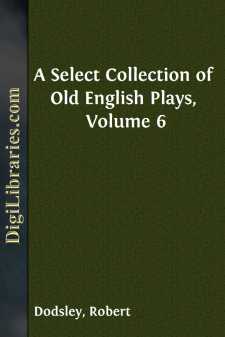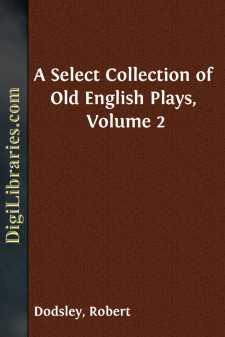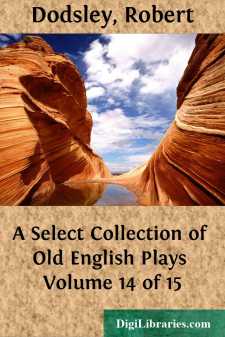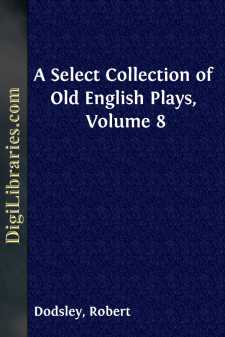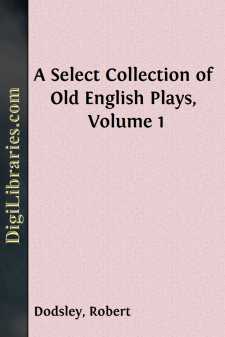Categories
- Antiques & Collectibles 13
- Architecture 36
- Art 48
- Bibles 22
- Biography & Autobiography 813
- Body, Mind & Spirit 142
- Business & Economics 28
- Children's Books 17
- Children's Fiction 14
- Computers 4
- Cooking 94
- Crafts & Hobbies 4
- Drama 346
- Education 46
- Family & Relationships 57
- Fiction 11829
- Games 19
- Gardening 17
- Health & Fitness 34
- History 1377
- House & Home 1
- Humor 147
- Juvenile Fiction 1873
- Juvenile Nonfiction 202
- Language Arts & Disciplines 88
- Law 16
- Literary Collections 686
- Literary Criticism 179
- Mathematics 13
- Medical 41
- Music 40
- Nature 179
- Non-Classifiable 1768
- Performing Arts 7
- Periodicals 1453
- Philosophy 64
- Photography 2
- Poetry 896
- Political Science 203
- Psychology 42
- Reference 154
- Religion 513
- Science 126
- Self-Help 84
- Social Science 81
- Sports & Recreation 34
- Study Aids 3
- Technology & Engineering 59
- Transportation 23
- Travel 463
- True Crime 29
Robert Dodsley
Robert Dodsley (1704–1764) was an influential English bookseller, publisher, poet, and playwright. He began his career as a footman before turning to writing, gaining initial fame with his satirical poem "The Muse in Livery" (1732). Dodsley later became a prominent publisher in London, where he published works by significant authors, including Samuel Johnson's "Dictionary of the English Language" (1755). He also co-founded "The Annual Register" in 1758, a historical and political review that became highly regarded.
Author's Books:
Sort by:
by:
Robert Dodsley
Four of the five ensuing Plays belong to a peculiar class of our early dramatic performances never yet especially noticed, nor sufficiently illustrated. Many specimens have of late years been printed, and reprinted, of Miracle-plays, of Moral-plays, and of productions written in the most matured period of our dramatic literature; but little or nothing has been done to afford information respecting a...
more...
by:
Robert Dodsley
INTERLUDE OF YOUTH. CHARITY.Jesu that his arms did spread,And on a tree was done to dead,From all perils he you defend!I desire audience till I have made an end,For I am come from God aboveTo occupy his laws to your behove,And am named Charity;There may no man saved beWithout the help of me,For he that Charity doth refuse,Other virtues though he do use,Without Charity it will not be,For it is written...
more...
by:
Robert Dodsley
TO HIS LOVING FRIEND THE AUTHOR, UPON HIS TRAGEDY "THE REBELLION."To praise thee, friend, and show the reason why,Issues from honest love, not flattery.My will is not to flatter, nor for spiteTo praise or dispraise, but to do thee rightProud daring rebels in their impious wayOf Machiavellian darkness this thy playExactly shows; speaks thee truth's satirist,Rebellion's foe, time's...
more...
by:
Robert Dodsley
SUMMER'S LAST WILL AND TESTAMENT.[16] Enter WILL SUMMER,[17] in his fool's coat but half on, coming out. Noctem peccatis et fraudibus objice nubem.[18] There is no such fine time to play the knave in as the night. I am a goose or a ghost, at least; for what with turmoil of getting my fool's apparel, and care of being perfect, I am sure I have not yet supp'd to-night. Will...
more...
by:
Robert Dodsley
PREFACE. After the lapse of about half a century since the issue of the last edition of Dodsley's Select Collection of Old Plays,[1] and the admittance of that work into the honourable rank of scarce and dear books, it seemed a desirable thing to attempt, with such additional improvements as might be practicable or expedient, a revival of a publication which has been a favourite with the lovers of...
more...


